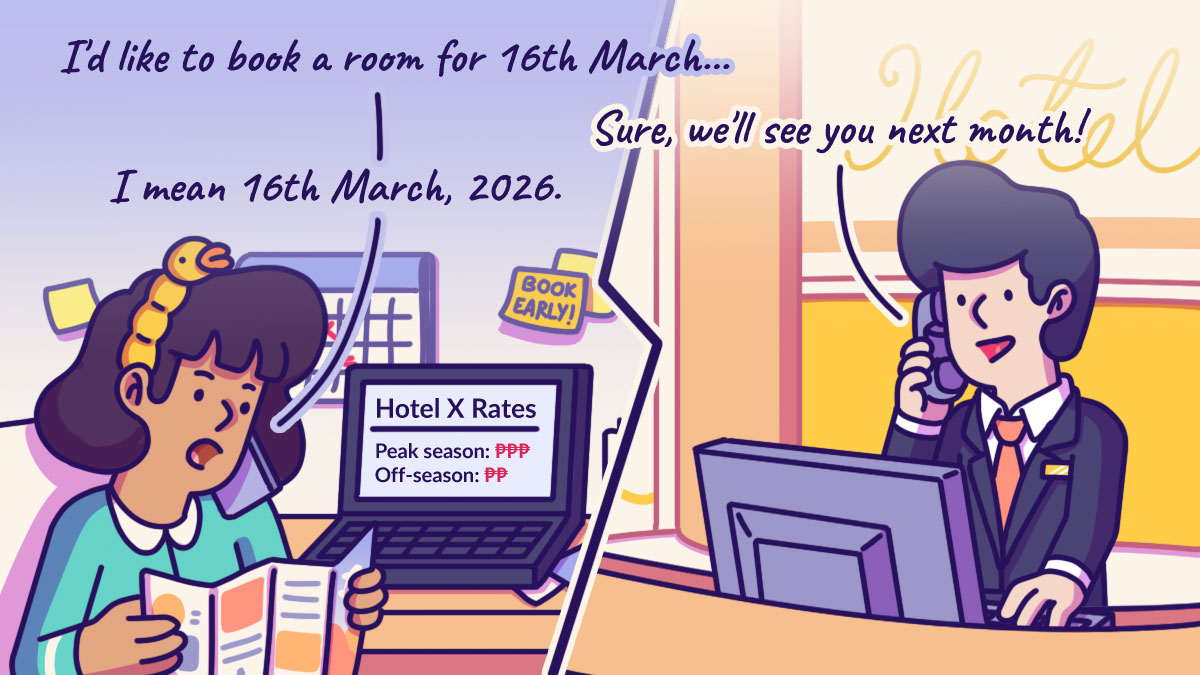Budgeting | Life | Personal Finance | Article
How Early Should You Start Planning For Your Vacation, And What To Consider
by Busra Aulya | February 20, 2025

A holiday is a long-awaited opportunity to relax, explore new places and create precious memories. However, rushed planning can lead to stress and unnecessary expenses. Therefore, determining the right time to start planning a vacation is crucial. How early you should start depends on various factors, such as destination, travel season, and personal preferences.
Destination and distance: How far are you going?
The further you travel, the more time you’ll need to prepare. For international trips, particularly to popular destinations, it’s best to start planning your vacation at least 6 to 12 months in advance.. This gives you enough time to research visa requirements, compare flight prices, and secure accommodation at the best rates. If you’re travelling to a high-demand location, like Europe in the summer or Japan during cherry blossom season, booking early becomes even more crucial to avoid skyrocketing prices and fully booked hotels.
If you are travelling domestic, or to destinations that are less crowded, planning 3-6 months ahead is usually enough. With fewer logistical challenges, such as visa applications or long-haul flights, domestic travel tends to offer more flexibility. However, if you’re visiting a well-known tourist spot or planning your trip around a major event, it’s still a good idea to book key aspects like flights and accommodations early.
Travel season: Peak vs Off-Peak
The time of year you choose to travel also greatly impacts how soon you should start planning. If you’re traveling during peak seasons – such as school holidays, Christmas, or major festivals – you should begin organising your trip as early as possible, ideally 10-12 months ahead. During these times, flights, hotels, and attractions tend to fill up quickly, and prices can rise significantly as demand increases. The earlier you book, the better options you’ll have, both in terms of availability and cost.
On the other hand, if you plan to travel during the off-peak season, you have much more flexibility. With fewer tourists and lower demand, flights and accommodations are often easier to find, and you can start planning 3-6 months in advance without much worry. In some cases, even last-minute deals might be available, allowing you to take advantage of lower prices.
Related
Trip complexity and special preferences
Not all trips are the same, and some require more detailed planning than others. If you have specific preferences, such as staying in a particular hotel, booking a highly sought-after tour, or attending a major event, early preparation is crucial. Limited availability means that the best options will be taken quickly, and delaying your reservations could result in missing out on your preferred choices.
Similarly, trips that involve multiple destinations, different modes of transport, or a packed itinerary require more time to organise. If you’re planning a long, multi-city vacation or a trip that includes a combination of flights, trains, and car rentals, it’s best to start planning at least 6-9 months in advance to avoid scheduling conflicts and ensure everything is well-coordinated.
Budget considerations
Your budget plays a significant role in the length of your holiday and how early you need to book. If your travel budget is limited, you may not be able to afford direct flights, and as a result, you might need to add extra days for travel. Those travelling on a lower budget will also need to start planning earlier, as cheaper accommodations tend to get booked up faster.
Travel companions and special needs
If you’re traveling with children or older relatives, more planning is required to accommodate their specific needs. For example, if your whole family includes both babies and older relatives, and you plan to stay at an Airbnb, you’ll need to communicate with the owner to confirm whether they provide a crib or if their bathrooms are elderly-friendly and equipped with non-slip features. This back-and-forth can sometimes take days or even months to sort out.
In addition, if you are travelling with a large family group, you might need specific arrangements, like a chartered van or bus, to get everyone around.
Different time zones and jet lag
If your trip involves crossing multiple time zones, you may need to factor in adjustment periods. Long-haul flights can result in significant jet lag, which may affect how much you can do in the first few days of your trip. Additionally, aligning your schedule with local business hours or planned activities might require extra time.
Beyond the financial and logistical benefits, early planning also reduces stress. Instead of scrambling to make last-minute bookings or adjusting your plans due to unavailability, you can relax knowing that everything is in place. Doing away with unnecessary stress will make your trip smoother and more enjoyable.
Whether you’re dreaming of a relaxing beach getaway or an adventurous cross-country tour, thoughtful planning is the key to making your trip a success. So, where are you planning to go next?
















